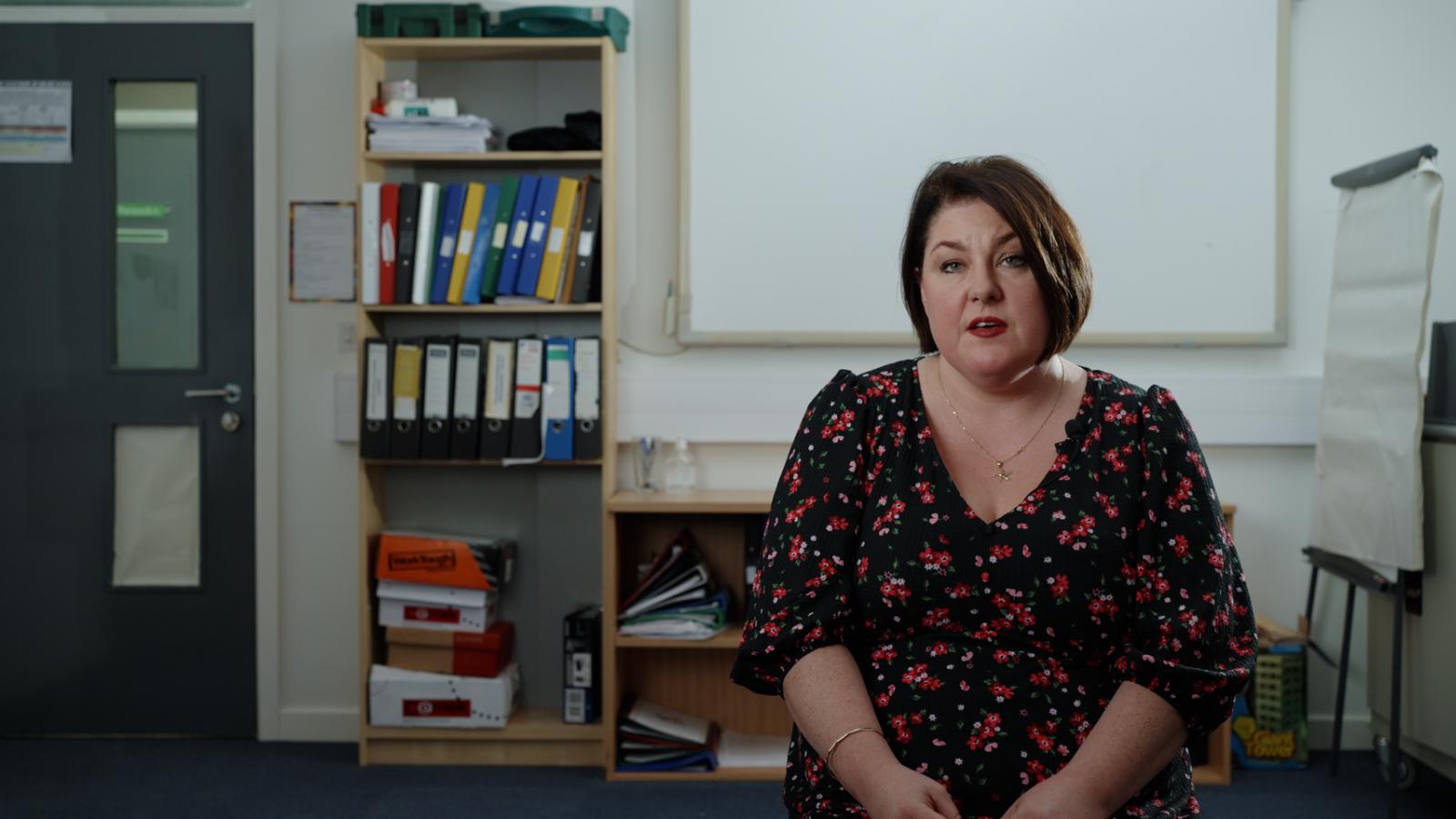We spoke with Christina Saunders-Wingfield, the Children’s Services Manager at ETS (employment, training and skills) North, about the work her service is doing to support young people and families in Newcastle.
Although our ETS North training service is focused primarily on providing alternative education and skills training, the service has stepped up to also provide food, clothing, and a warm space for the wider community during the pandemic and now during the cost-of-living crisis.
What does Barnardo’s ETS North do?
“We’re the largest Barnardo’s ETS (employment, training, and skills) service and we’ve been supporting young people to move forward with their careers for the past 40 years.
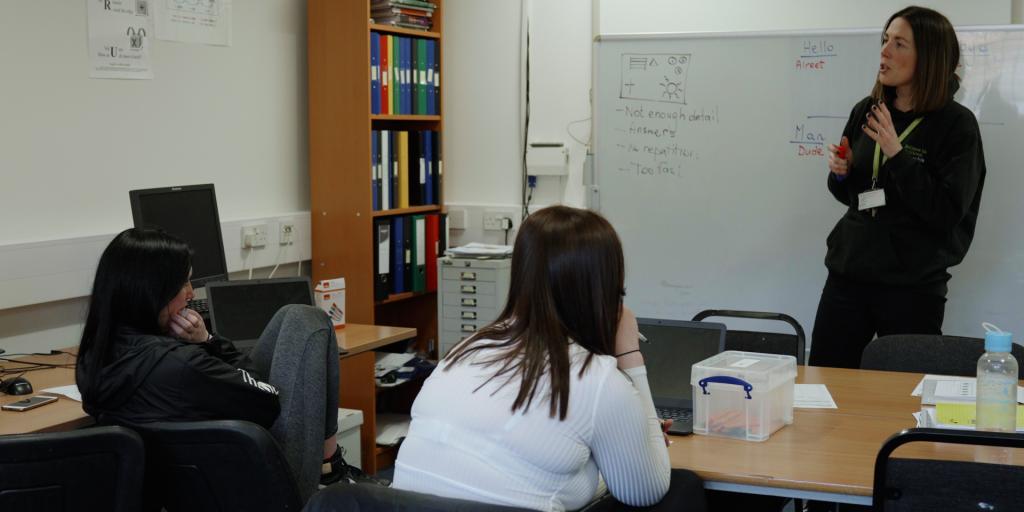
Essentially, we deliver any qualification that any other mainstream college would deliver, so just think of us as a very small college. We offer comprehensive courses where young people can learn all the skills required to pick up a new career.
We take learners that are excluded from school or who are on a reduced timetable, or who maybe formal school’s just not for them, or they've been home-schooled and they just need to access some form of certified education or professional qualifications to be able to start out in a career they’re interested in. Young people can really come to us to learn without any previous professional qualifications at all,” Christina said.
What would you say is the proportion of young people you support that have been excluded or are coming to ETS North after having experienced a lack of support in school?
“For young people that are coming to us from schools – typically our 14- to 16-year-olds – 90% I would say have been excluded from school or are maybe turning up to school for one day a week. For our 16- to 18-year-olds, most of our young people come to us without currently being in education, employment or training.
We have got a lot of 19+ learners too who may have an educational healthcare plan because they may have additional support needs. Some also don’t have a formal educational healthcare plan, but it’s clear they do still need further support to continue their education.
We don't have an upper age limit even though we're Barnardo’s and we are a children's charity because we're trying to break the cycle of poverty for families over the long-term to ensure the next generation has the skills and support they need to grow and thrive.”
We're trying to break the cycle of poverty for families over the long-term to ensure the next generation has the skills and support they need to grow and thrive.
Christina Saunders-Wingfield
Children’s Services Manager, Barnardo's ETS North
How is the cost-of-living crisis impacting your service and the young people you support?
“I'm seeing young people that are hungry, very hungry, in fact, to the point where we had to start a tiny little food bank with staff bringing this, that, and the other.
Now, we supply everything that you can imagine being in a food bank as well as other things like baby milk and nappies. And it is heavily used, to the point where we've had to increase our stock pickups to make sure that we can cover everything that’s needed.
A lot of the kids who come through the food bank would say things like I can't have that because my mum and dad can't pay the food bill or they're in debt or we've got no money left for food because we've had to do this or that. So, we’ve also used a lot of funding to pay gas bills and heating bills so that young people and families could top-up their meters,” Christina said
Why did you set up the food bank and how long ago did you start doing it?
“Just at the start of COVID and because we were seeing more and more young people using our tuck shop here. It was clear that some of the learners would come in very hungry and the snacks they were able to get from our tuck shop weren’t enough. So that's why we decided to set up the food bank. Our retail department actually set it up for us with the support of our retail learners.”
Why are warm spaces and food banks so important right now?
“I would say over 80% of our young people and young adults access our food bank. They haven't got the money to pay for their groceries, and the heating or the electricity or whatever they need to cook their meals.
A lot of our young parents have been coming in to stay warm until their kids come from school as well as accessing our food bank to feed their children. We don’t want anyone to do without a meal so we’re clear that anyone can take what they want – I don't care if it's for your auntie, uncle, brother, sister, or whoever.
We don’t want anyone to do without a meal so we’re clear that anyone can take what they want – I don't care if it's for your auntie, uncle, brother, sister, or whoever.
When our learners have got young children, it can be difficult to get them clothed. We’ve helped with that too; we’ve done some clothes swapping where all our staff and everyone bought loads of different clothes. We've got washing machines and dryers too so we can wash clothes for anyone that might need that as well.
I think of a young lady who walked in one day with a pair of flip flops that were broken in torrential rain. She just could not afford a pair of shoes. All we had at the time in her size was a pair of steel toe work boots, so she went home in a pair of steel toe work boots until we could find her something else. She didn't mind because she had dry feet,” Christina said.
What is the best part of your job?
“The best part of my job is spending time with the young people – I probably know every single young person's name by heart. I love getting to go out and speak to young people and it really, truly does brighten my day, I would not be here after 20 years if it didn't. And we have WhatsApp groups for every single group of young people which means I can always be there when they need me.”
How does education through Barnardo’s make a difference to young people’s lives?
“Time. The time we give to young people and our class sizes are tiny.
You can see through our data that we make a difference. You can see that we're giving these young people and young adults qualifications that they can then use to go on into careers they’re interested in. Last year, amongst our 16 to 18 cohort, 90% of them went on to a positive destination, be that employment, an apprenticeship, or further education.
If you go to a college, you've sometimes got to commit to two years of learning before you get your full certificate to be able to do that, but the way we're delivering learning means that our learners can move more quickly into an industry of their choice and earn a living that can keep them safe, warm, and fed. That's what’s really important to us,” Christina said.
The way we're delivering learning means that our learners can move more quickly into an industry of their choice and earn a living that can keep them safe, warm, and fed. That's what’s really important to us.
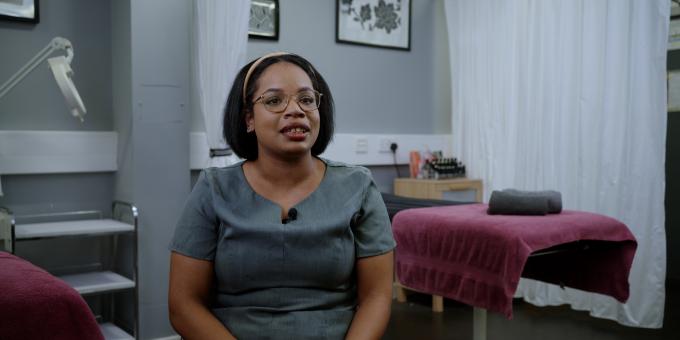
Becky's story
We spoke to Becky to talk about how it was for her to get back into education and training as well as her experience receiving vital support with everyday essentials through our Byker Sand’s Family Centre.
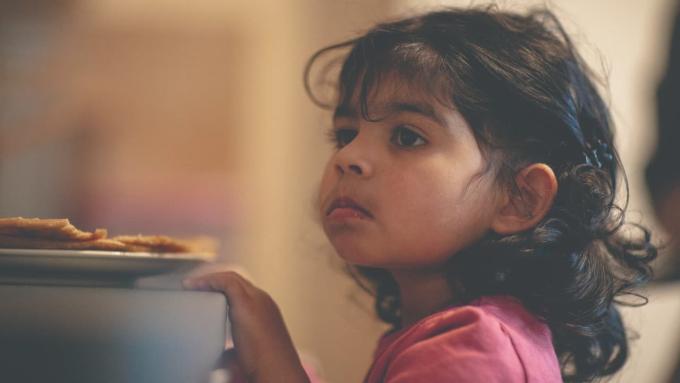
No child should grow up in poverty
That's why we're taking action right now. Our frontline staff are providing essential support for young people and families who are using our services and are struggling by delivering clothes, appliances and vouchers to help with everyday essentials like food.
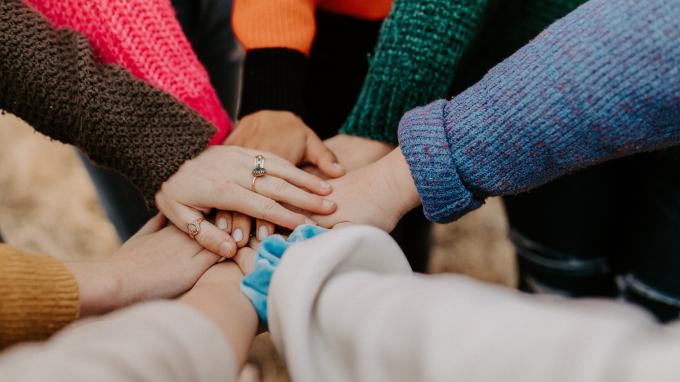
Our services
Search our services supporting children, young people and their families across the UK.

